May 28, 2025 | 02:43 GMT +7
May 28, 2025 | 02:43 GMT +7
Hotline: 0913.378.918
May 28, 2025 | 02:43 GMT +7
Hotline: 0913.378.918
In Vietnam today, the Sustainable Forest Management Certification Office (VFCO) is the entity responsible for developing and advancing standards, procedures, and guidelines for implementing sustainable forest management and forest certification. This includes standards currently applied in the implementation of VFCS/PEFC forest management certification and PEFC Chain of Custody (CoC) certification; regulations on the use of VFCS and PEFC labels.
Meeting VFCS/PEFC standards brings several benefits to forest owners. Firstly, it ensures legality, supports sustainable development, and most importantly, promotes environmental friendliness and conservation.
Legally, the area certified under VFCS/PEFC complies fully with Vietnamese legal regulations and international standards, including issues related to land and forest management according to Vietnamese law.
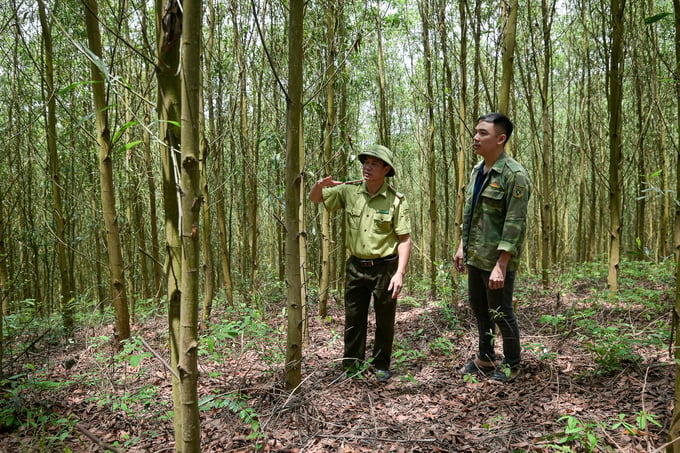
When meeting VFCS/PEFC standards, the profit earned by forest growers is expected to increase by at least 10%. Photo: Tung Dinh.
From there, meeting the requirements for disclosure and transparency of the origin of forest products is crucial for importers, such as complying with the requirements of VPA/FLEGT.
In terms of sustainable development, forest owners adhere to national and international standards for sustainable forest management, product chain of custody from forest to market. Additionally, these standards are independently assessed and certified by third parties.
Furthermore, it's important to note the contribution to national sustainability goals and climate change mitigation. For example, adhering to VFCS/PEFC standards while planting forests helps maintain and enhance ecosystems, mitigate impacts, and adapt to climate change. It also promotes the development of local communities.
Significantly, according to experts' assessments, meeting VFCS/PEFC standards can increase forest owners' profits by at least 10%.
Previously, most people planted forests with seeds or bought seedlings available in the market. After harvesting, many forest owners used slash-and-burn methods for debris and residues due to its quick and convenient nature. However, to meet VFCS/PEFC standards, these practices need to change.
Tran Cao Bang from Duc Son commune, Anh Son district (Nghe An province), shared that after training related to VFCS/PEFC, his family stopped burning residues and debris, maintaining them instead. This change has led to better efficiency and higher-quality wood. "Forests without burning residues have good moisture, which helps trees grow faster," Bang noted.
After applying VFCS/PEFC standards to forest planting for over a year, Bang's acacia trees have grown to 4-5 meters tall with straight trunks and thick bases. The diameter of many trees has reached 10 cm. According to Bang, trees grown under these standards have doubled in size compared to traditional slash-and-burn methods within a year.
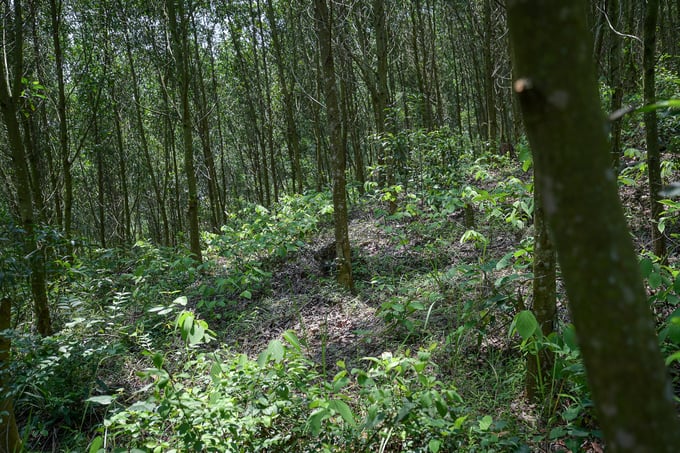
The gum trees grown to meet sustainable forest management certification standards will grow and develop better. Photo: Tung Dinh.
Mr. Nguyen Hoang Tiep, Deputy Director of the Vietnam Office of Sustainable Forest Certification (VFCO), believes that applying these standards brings both economic and environmental effectiveness.
"Economically, these standards help improve the quality and productivity of forests. According to experiments by the Vietnam Academy of Forest Sciences, if post-harvest residue burning is avoided through proper site preparation, forest productivity can increase by up to 10%," Mr. Tiep stated.
In addition to avoiding residue burning, local communities are guided to plant trees in rows with a maintained spacing of about 2 meters between each tree. Moreover, by meeting the requirements of international importers, forest areas certified under VFCS/PEFC are often targeted for growing large timber instead of selling wood chips as before, thereby increasing their economic value.
Furthermore, with improved quality and upgraded standards, forest owners are assured of product off-take by export companies, eliminating the uncertainties of dealing with traders as in the past.
Beyond enhancing forest quality and income for forest owners, planting forests certified under VFCS/PEFC also brings benefits by enhancing credibility and expanding access to Vietnamese forest products on the international market.
It can be said that national forest certification ensures the interests of stakeholders involved in forest planting, harvesting, processing, and trade.
Meeting these standards and criteria demonstrates that forest planting is not only about generating valuable timber resources but also reflects Vietnam's commitment to environmental protection and sustainable development.
Therefore, this helps Vietnamese businesses and farmers remain competitive by meeting stringent environmental and social standards set by import markets, fulfilling the strict technical requirements of these markets.
One of the assessment criteria of VFCS/PEFC is the use of certified planting stock. When using clearly sourced planting stock, such as tissue-cultured seedlings, the trees grow uniformly, are disease-free, and facilitate effective traceability of wood sources in the future.
According to information from VFCO, their capacity development and collaboration expansion efforts have yielded impressive results. Specifically, in sustainable forest management standards, VFCO has trained 78 assessors and 161 other related personnel, while for CoC standards, they have trained 69 assessors and 85 other personnel.
Currently, 100 entities are using the VFCS/PEFC label, with 30 procedures in place for participation in the VFCS/PEFC system.
In terms of promotional and communication activities, VFCO has organized 2 sideline events at the Asia-Pacific Forestry Conference, 2 workshops, and 2 forums on sustainable forest management and forest certification. Additionally, they have participated in 4 trade fairs, exhibitions, and introduced the VFCS/PEFC certification system at 23 forestry industry seminars both domestically and internationally.
The VFCO office also consistently disseminates information through various media channels and produces video clips for promotional purposes to raise awareness about the national forest certification system, as well as publishes other communication materials.
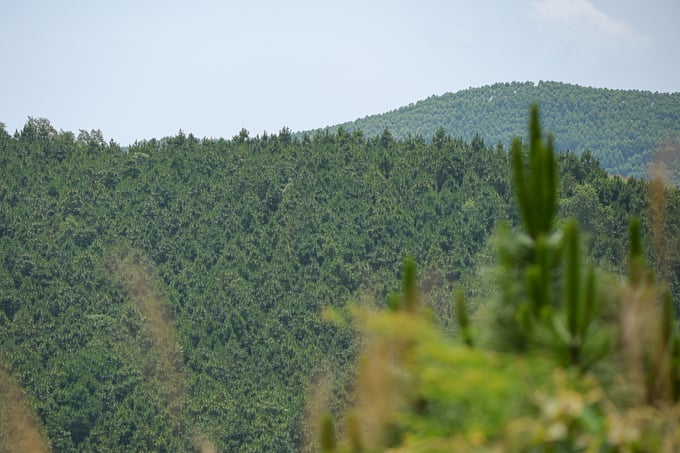
Besides certification issuance, the VFCO office is also ready to support businesses in market connection. Photo: Tung Dinh.
In addition to conducting assessments and inspections for certification, the VFCO office also actively supports businesses in connecting to markets, particularly for products like resin and rubber.
Furthermore, they assist exporting businesses in providing explanations regarding the legality, traceability of sources, and transparency of the VFCS/PEFC system to import partners.
VFCO is also proactively collaborating with the Japan Forest Certification Council (SGEC) to understand the requirements for Forest Improvement Treatment (FIT) imports, thereby supporting export businesses.
Moreover, leveraging the system's advantages, VFCO closely collaborates with PEFC and its member national forest certification systems in business and trade connections.
The practice of forest management under VFCS/PEFC not only brings economic benefits to forest owners but also enhances environmental improvement and protection, combating erosion and promoting ecological development. Specifically, adhering to VFCS/PEFC mandatory criteria for protecting riparian buffers of rivers and streams ensures compliance with both certification requirements and Vietnam's governmental environmental protection mandates.
Translated by Mai Quang Huy

(VAN) World Environment Day 2025 is launched by the United Nations Environment Programme (UNEP) with the theme 'Beat Plastic Pollution'.
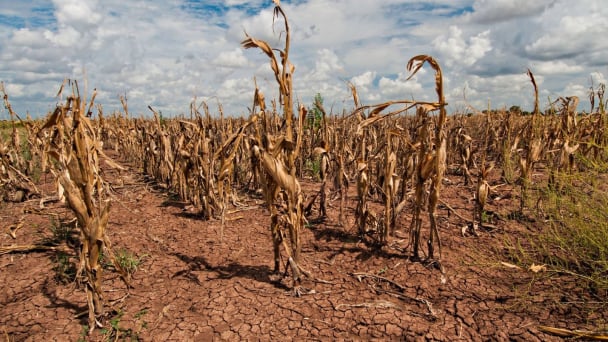
(VAN) As climate whiplash reshapes yields, experts say data-driven tools and targeted relief are critical to feed America.
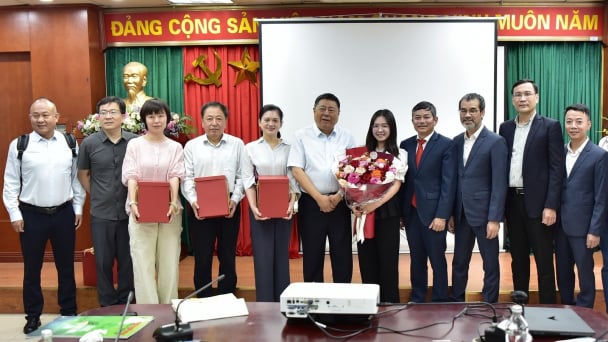
(VAN) The alignment in goals and operational direction between the Vietnam Agriculture and Nature Newspaper and Shaanxi Daily opens up promising prospects for journalism and media cooperation.
/2025/05/26/3422-3-102748_432.jpg)
(VAN) Prime Minister Pham Minh Chinh has been honored as the Distinguished ASEAN Leader at the ASEAN Leadership and Partnership Forum (ALPF) 2025 held in Malaysia, affirming Vietnam’s role and reputation.

(VAN) At WHA78, with health placed at the heart of the global climate storm, Viet Nam enters a new commitment to protect communities from increasingly severe risks.
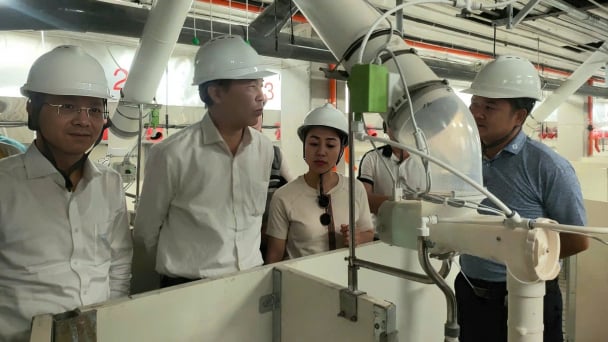
(VAN) Despite investment costs being 1.5 to 1.8 times higher than conventional methods, multi-story pig farming demonstrates outstanding effectiveness, increasing land-use efficiency by 4 to 10 times.
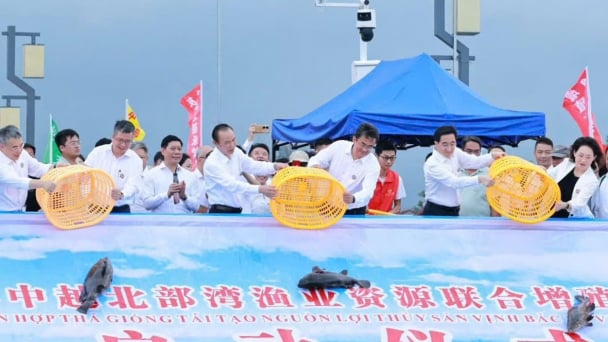
(VAN) Deputy Minister of Agriculture and Environment Phung Duc Tien leads a working delegation to participate in several key activities in China aimed at promoting agricultural and fisheries cooperation.